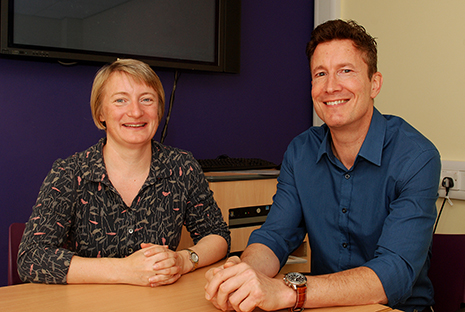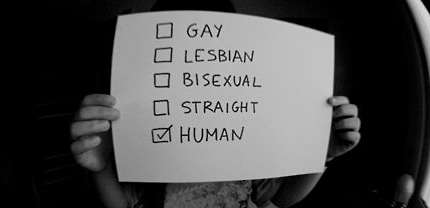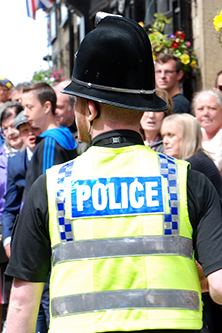170,000 hate crimes go unreported in the UK each year

Thu, 13 Oct 2016 13:10:00 BST
Researchers develop new hate crimes reporting systems to provide authorities with a clearer picture of the level of abuse
 ► Michelle Rogerson and Kris Christmann
► Michelle Rogerson and Kris Christmann
HATE crimes are massively under reported, making it all the more difficult for police and other authorities to make an impact on the issue. Now, researchers at the University of Huddersfield have devised techniques that could result in much more accurate estimates. They have described the developments at a special seminar taking place during 2016’s National Hate Crime Awareness Week.
Kris Christmann and Michelle Rogerson – who are members of the Applied Criminology Centre (ACC) at the University’s School of Human and Health Sciences – have collaborated on devising two tools that will aid the authorities. One will help to provide a realistic assessment of the true levels of hate crime. The other will enable accurate appraisals of the performance of the third-party reporting centres established in a variety of locations, following recommendations in the Stephen Lawrence Inquiry report.
 “There is nothing like these tools available at the moment, and we think they will make a difference to agencies,” said Mr Christmann. He added that both tools are currently being piloted by statutory agencies including police forces and he and his co-researchers would be unveiling more detail and reporting on feedback when they spoke at a seminar in Sheffield named Hate Crime Reporting – narrowing the gap.
“There is nothing like these tools available at the moment, and we think they will make a difference to agencies,” said Mr Christmann. He added that both tools are currently being piloted by statutory agencies including police forces and he and his co-researchers would be unveiling more detail and reporting on feedback when they spoke at a seminar in Sheffield named Hate Crime Reporting – narrowing the gap.
The title of the event stems from figures which show that in 2014/15, police in England and Wales recorded 52,528 hate crimes, but Crime Survey data estimated that on average there were actually 222,000 hate crimes each year.
Mr Christmann is a Research Fellow at the University of Huddersfield’s Applied Criminology Centre and he has been working on the issue of hate crime and how to estimate its true level for several years.
With his co-researcher Dr Kevin Wong – also a member of the ACC – he has authored Hate Crime Victimisation that will appear as a chapter in a soon-published book titled Handbook on Victims Issues in Criminal Justice.
 Five types of hate crime
Five types of hate crime
There are currently five strands of hate crime. Racial hate is the most prevalent, followed by sexual orientation, sexual identity, disability and faith-based hate crime.
In developing the new tools, Mr Christmann and his colleagues have carried out six sweeps of data across eight police forces in the UK. This has helped them to arrive at far more realistic estimates of a crime that is “notoriously under-reported”.
“The main reasons are that people believe that nothing will or can be done about it or that they believe that the police won’t take it seriously. And of course, the police are trying to change those attitudes,” said Mr Christmann.
The Government has produced a new hate crime action plan that makes specific mention of the need to increase reporting levels.
The new tools developed by members of the University of Huddersfield’s Applied Criminology Centre should enable the authorities to arrive at a better assessment of the true levels of hate crime. Also, there will be a means of assessing the performance of the Third-Party Reporting Centres (TPRC) that were the result of a Government initiative.
“The few evaluative research studies available give some cause for concern about the effectiveness of many TPRCs, therefore we have developed a tool that provides some measure of productivity with measureable outcomes to determine success,” Mr Christmann.







